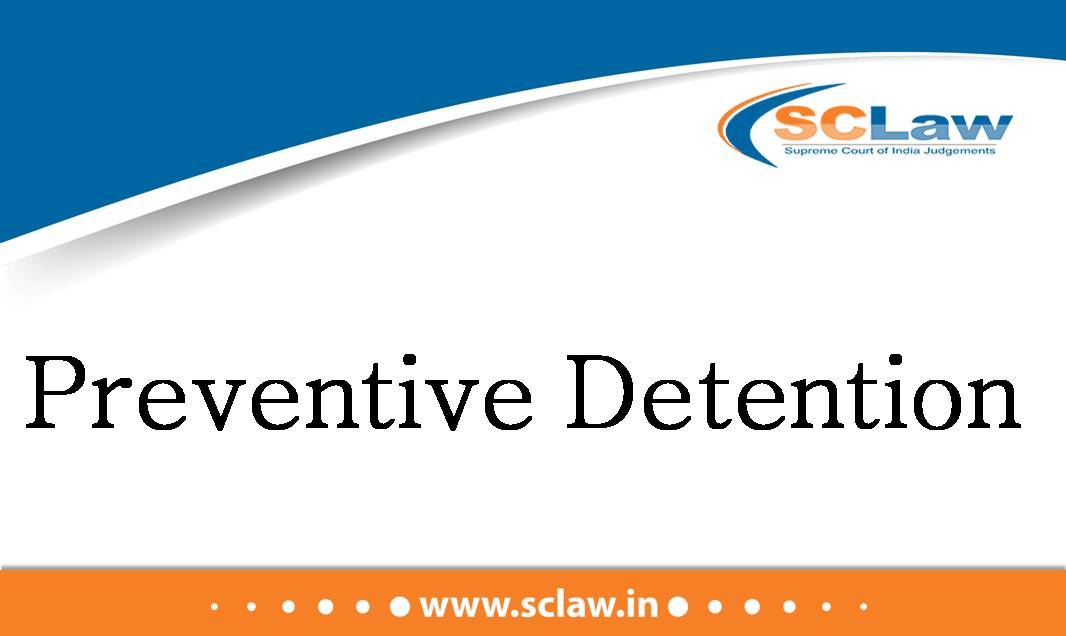Prevention Detention—Unexplained delay of 5 days by District Magistrate in sending report to State Government—Detention Order vitiated.
2018(3) Law Herald (SC) 1903 : 2018 LawHerald.Org 1403 IN THE SUPREME COURT OF INDIA Before Hon’ble Mr. Chief Justice Dipak Misra Hon’ble Mr. Justice A.M. Khanwilkar Hon’ble Mr. Justice…









